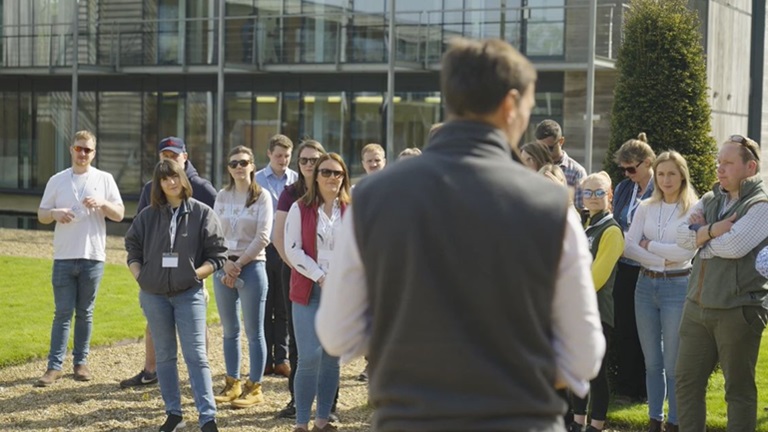
A programme which helps the next generation of farmers develop their skills in sustainable agriculture has opened this year for applications, with 75 spaces available.
The Future Farmer Programme provides 75 young farmers with face-to-face and online training on how to implement sustainable agriculture practices.
The nine-month course, which was launched for the first time last year, also include events and mentoring sessions on business operations and personal development.
Farmers under the age of 40 from across different sectors and at different stages of their development are being encouraged to apply for the programme ahead of its start date in October.
Harper Adams University’s School of Sustainable Food and Farming launched the programme last year at the Royal Welsh Show.
The initial cohort of 75 learners completed a nine-month programme of activities based around practical learning.
During this, the farmers visited ABP Food group’s sites in both Newport and Ellesmere, to find out more about the work of the group – which is one of Europe’s leading food processors.
They also visited the Sansaw estate, at Hadnall, near Shrewsbury, where a progressive dairy is coupled with a business park and tenanted cottages, to discuss sustainable land management.
And finally, the farmers visited the Halfpenny Green Vineyard, who pair their award-winning wines with wider attractions, including a restaurant, shop and deli, a craft village and a wild zoo.
Simon Thelwell, director of Harper Adams' School of Sustainable Food and Farming, said the cohort of farmers from the first year found the course 'incredibly valuable'.
“Visits are a key part of the mix of in-person and online learning which has been at the heart of the Future Farmer programme," he added.
"The online sessions are designed to help fit around farmers’ busy lives, and the in-person elements both allowing them to talk with experts directly.
“We’re grateful for all of the businesses who have lent us their time and expertise over the past year to help us bring some of the key concepts we have been discussing around sustainable agriculture to life in the field.”
Those interested in applying for the course can find out more information on the school's website.
